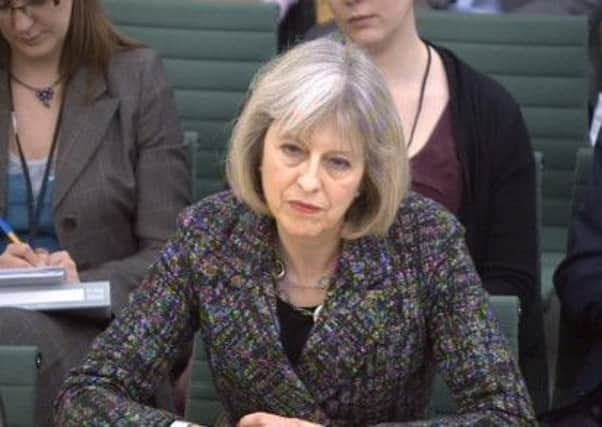Anti-slavery law: Human traffickers to get life


The Modern Slavery Bill – for England and Wales – contains provisions to give automatic life sentences to offenders who already have convictions for very serious sexual or violent offences.
The draft Bill, originally announced by Home Secretary Theresa May at the Conservative Party conference in September and laid down in parliament yesterday, pulls together into a single act the offences used to prosecute slave drivers.
Advertisement
Hide AdAdvertisement
Hide AdThe Scottish Government have also made it a priority, with the prospect of similar rules being introduced through a private members bill from Labour MSP Jenny Marra.
A Scottish Government spokesperson said: “Human trafficking is a heinous crime and clearly an international and cross-border partnership approach is the most effective way to tackle it.
“We are giving careful consideration to the UK government’s proposed Modern Slavery Bill and are working with them to explore the potential for the Modern Slavery Bill to cover Scottish interests.
“We note Ms Marra’s consultation on a proposal for a Bill and will give careful consideration to any Bill brought forward on human trafficking.”
The Bill south of the Border also introduces Trafficking Prevention Orders to restrict the activity and movement of convicted traffickers and stop them from committing further offences A new Anti-Slavery Commissioner will be appointed to hold law enforcement and other organisations to account.
Mrs May admitted that the government still did not know how many “modern day slaves” there were in the UK.
She said: “The honest position is that we don’t know whether that is the right figure, or whether there are fewer or indeed more victims in the UK.
“What we do know is that we have seen more referrals to what is called the national referral mechanism, where people are able to refer people who they think have been trafficked, who they think are the victims of modern slavery, into a central mechanism.
Advertisement
Hide AdAdvertisement
Hide Ad“The number of referrals has been increasing, and it’s on that basis that we believe that we have seen an increase in this absolutely horrendous and appalling crime.”
Human trafficking charity Hope for Justice said that ensuring victims were properly supported was essential to successfully prosecuting offenders. Charity founder Ben Cooley said: “We’ve learnt from experience that victim welfare is inextricably linked to the prosecution of perpetrators.
“When victims are supported from rescue right through to the courtroom, their testimonies make all the difference in seeing justice served. Sadly, we don’t always see that happen in the UK, and Hope for Justice exists to stand in those gaps.
“This Bill is a critical step towards ending slavery in our country but, going forwards, we must all ensure that victims are supported so they don’t disappear on the other side of initial after-care provision just to be
re-trafficked.”